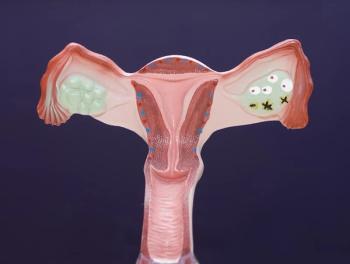
Miami Breast Cancer Conference® Abstracts Supplement
- 40th Annual Miami Breast Cancer Conference® - Abstracts
- Volume 37
- Issue suppl 4
- Pages: 11-12
5 Treatment Patterns and Clinical Outcomes in Patients Receiving Palbociclib Combinations as First- Line Treatment for Advanced or Metastatic Breast Cancer in Realworld Settings in Argentina and Colombia: Results from the IRIS Study
Background
Palbociclib (P) was the first CDK 4/6 inhibitor approved in combination with an aromatase inhibitor (AI) or fulvestrant (F) (Argentina approval P+AI: December 2015, P+F: August 2016; Colombia approval for both combinations: November 2018) for HR+/HER2–advanced/metastatic breast cancer (ABC/ MBC) patients. Evidence for its use in real-world patients is only just emerging. The Ibrance Real World Insights (IRIS) study collected data from patients with hormone receptor–positive (HR+), human epidermal growth factor 2-negative (HER2–) advanced breast cancer (ABC)/metastatic breast cancer (MBC) receiving palbociclib combination therapy in real-world settings. Results are presented for Colombia and Argentina.
Materials and Methods
A retrospective medical chart review of adult female patients with HR+/HER2– ABC/MBC who received palbociclib + aromatase inhibitor (P+AI) or palbociclib + fulvestrant (P+F) at first line was reviewed by their physicians between May 2019–September 2019 (Argentina) and November 2020–March 2021 (Colombia).
Results
Records of 669 patients (pts) receiving P+AI or P+F in Argentina (n = 469) and Colombia (n = 200) were abstracted by 71 physicians. Overall, 430 pts received P+AI (64.3%) and 239 pts received P+F (35.7%) at the first line. At initiation, the mean (SD) age of pts was 60.0 (11.2) years, and Eastern Cooperative Oncology Group (ECOG) performance status was mostly 0 (25.6%) or 1 (49.5%). In total, 73.3% P+AI and 51.9% P+F pts remained on treatment at data abstraction. Median duration of follow-up from initiation was 14.9 months P+AI and 12.0 months P+F. Median duration of ongoing palbociclib treatment was 11.2 months P+AI, 8.8 months P+F. Most pts initiated palbociclib at a dose of 125 mg/day (94.9% P+AI and 95.8% P+F); of those, 17.0% P+AI and 9.2% P+F pts experienced dose reduction(s).
Conclusions
Palbociclib combinations are well tolerated and demonstrate favorable outcomes in first-line ABC/mBC settings. A high proportion of patients initiated palbociclib at 125 mg/day and low rates of dose reduction were observed, demonstrating good palbociclib tolerability among the Argentine and Colombian populations. Progression-free survival and overall survival rates were favorable for palbociclib combinations. Real-world results complement the clinical trial data, but a longer follow-up period is required for more mature outcomes.
AFFILIATIONS:
Alexandra Guarin,1 Katie Mycock,2 Gary Milligan,2 Gavin Taylor- Stokes,2 Christian Atkinson2
1Pfizer Inc, Bogotá, Colombia.
2Adelphi Real World, Bollington, UK.
Articles in this issue
Newsletter
Stay up to date on recent advances in the multidisciplinary approach to cancer.






































